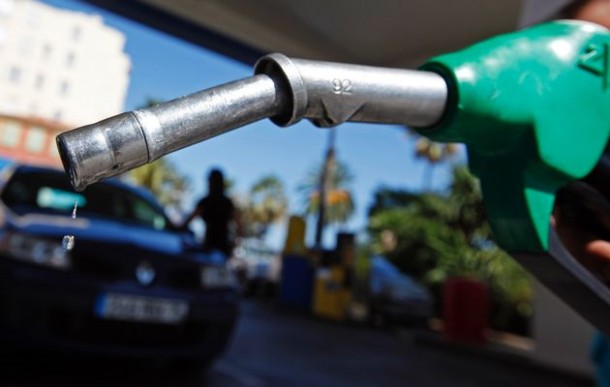Sometimes last year, the federal government announced that it had removed subsidy on petrol and started full deregulation of the downstream sector of the oil industry.
This announcement was roundly applauded, because to the majority of informed Nigerians, full deregulation was the ultimate solution to the problem of subsidy, rising fuel prices and the periodic fuel scarcity in the country.
But this scenario has not been allowed to become a reality as the government has continued to hold the rope after saying it has released the goat.
The Petroleum Pricing and Marketing Company (PPMC), the subsidiary of the Nigerian National Petroleum Corporation (NNPC) has continued to be the sole importer of petroleum products into the country. The company imports the product and announces the price it will sell to depot owners.
The false claims and the deceit became very clear this March when less than two weeks after assuring Nigerians that there will be no increase in fuel price in March, the government increased petrol price while still denying that there is fuel increase.
The Petroleum Products Pricing Regulatory Agency (PPPRA) had announced that the retail price for a litre of petrol for the month of March would be between N209.61 and N212.61.
It said the ex-depot price, the amount sold by fuel depot owners to marketers, will be N206.42. The agency also stated that the landing cost stood at N189.61 per litre.
All these appeared on its website. But following public outcry, the template was quickly deleted, but that was after the damage had been done or the government had achieved its objective.
However, the fact that the price of the commodity is still been sold at an average of N170 in petrol stations across the country, meant that the Federal Government, through the Nigerian National Petroleum Corporation, NNPC is spending an average of N42 to subsidise a litre of the commodity for Nigerians.
The PPPRA confirmed that fuel subsidy actually officially returned in February 2021, as according to the downstream oil sector regulator, the actual pump price of PMS for February was between N183.74 and N186.74 per litre, meaning that the Federal Government paid an average of N16 per litre for PMS in the month.
To illustrate the level of government deceit as far as deregulation is concerned, the oil marketers once told of how, in several meetings between them and officials of the Ministry of Petroleum Resources, the government officials would claim to have issued directive to the CBN to make foreign exchange available to them at certain rates for fuel importation.
But on approaching the CBN, they would be told by the CBN officials that they were not aware of such a directive.
National President of Petroleum Products Retail Outlets Owners Association of Nigeria (PETROAN), Dr. Billy Gillis-Harry, said once the deregulation is properly outlined and the rules of engagement brought out, its members, comprising major and independent marketers, as well as depot owners, would begin fuel importation.
He insisted that the government should do the right thing by ensuring that the rules are properly spelt out and policies are clear enough to enable oil marketers understand the government’s plans and roadmap, so as to enable them know what to do at any given time.
Similarly, the Chairman of MOMAN, Adetunji Oyebanji, said the government must have appropriate legislation to back up the pronouncement of deregulation. Proper legislation, he said, will allow market dynamics to prevail.
To Israel Aye, an energy expert and Senior Partner, Energy & Commercial Contracts, Primera Africa Legal, until the Petroleum Act was amended, the government should not say it has deregulated the downstream petroleum sector.
“Do you fix prices in a deregulated market?” he queried. “To deregulate the downstream would require change in the existing legislative framework and market structure. We may have set the pump price at cost recovery levels but have not taken the necessary steps towards deregulating the sector.”

 Health5 days ago
Health5 days ago
 Entertainment7 days ago
Entertainment7 days ago
 Crime6 days ago
Crime6 days ago
 Education1 week ago
Education1 week ago
 Health1 week ago
Health1 week ago
 Comments and Issues6 days ago
Comments and Issues6 days ago
 Football7 days ago
Football7 days ago
 Latest6 days ago
Latest6 days ago

